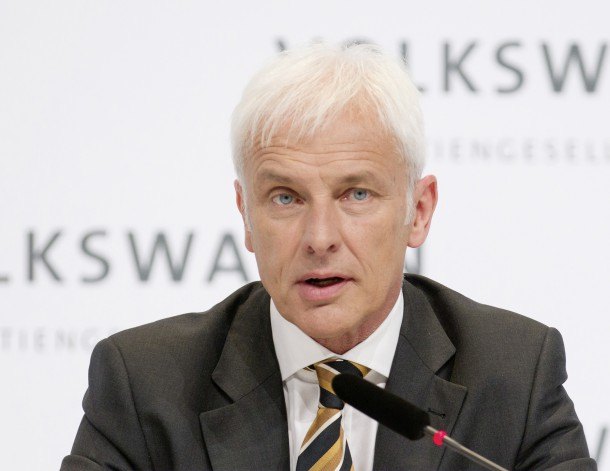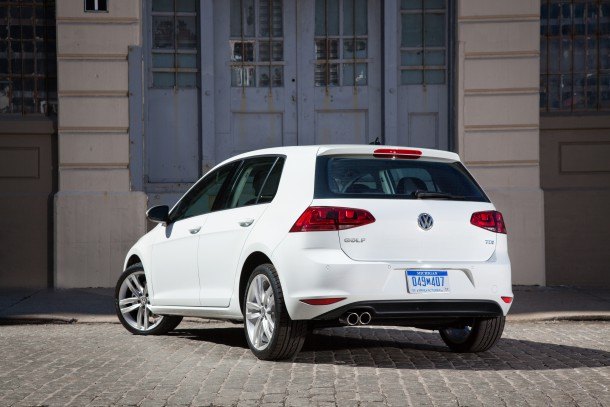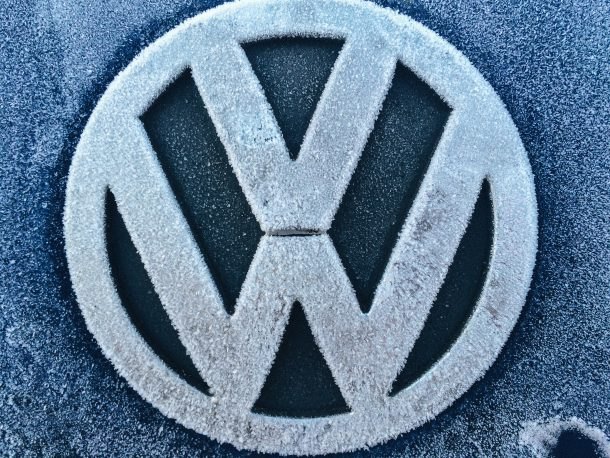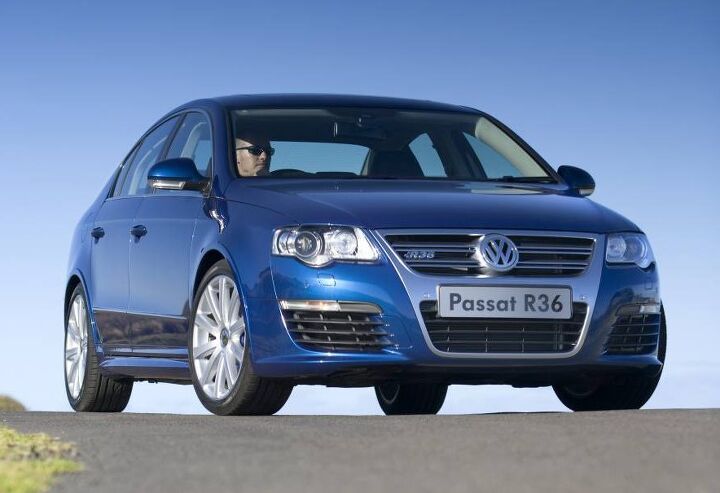#EmissionsCheating
CEO Says It Could Be 'Years' Before Volkswagen Gets Its Corporate Culture Under Control
Volkswagen has attempted to portray itself as a kinder and more responsible automaker in the wake of its emissions cheating scandal. However, CEO Matthias Müller says convincing middle management to change has proven exceptionally difficult. VW has been pushing to become — or at least seem like — a more transparent company that has decentralized its rigid management hierarchy.
“There are definitely people who are longing for the old centralistic leadership,” Müller stated during a meeting with business representatives on Monday. “I don’t know whether you can imagine how difficult it is to change their mindset.”
It’s been 20 months since the diesel emissions scandal entered the news cycle and Müller took over as chief executive. Throughout that time, VW’s top executives have tossed mid-level employees under the bus on numerous occasions. While there is little reason to doubt some might have trouble adjusting to a new corporate climate, it would be nice to hear top brass taking any semblance of responsibility once in a while — even on something minor like this.
German Prosecutors Confirm VW CEO as Focus of Official Investigation
German prosecutors verified the launch of a formal investigation involving Volkswagen Group CEO Matthias Müller and chairman Hans Dieter Poetsch due to suspected market manipulation.
While we reported on the probe last week, Müller’s inclusion was highly unexpected. It was unclear what, if anything, officials had on the CEO and why they waited until now to add him to the growing number of upper-level executives under examination.
The Stuttgart prosecutor’s office stated on Wednesday the investigation was prompted by a request from market regulator BaFin in the summer of 2016. After spending some time gathering evidence, investigators began to believe executives deliberately postponed releasing information to investors about the scale of the scandal and didn’t adequately disclose its financial consequences.
VW Group maintains the leadership had complied with disclosure rules and executives were unaware of the scope of the emissions cheating scandal when it kicked-off.
VW Fined Billions of Dollars for What Looks Like the Last Time
Oh my God, it’s finally almost over. After a 10-year conspiracy and almost 600,000 rigged diesel cars, VW’s legal battle with the United States is coming to an end. Volkswagen pled guilty last month to conspiracy to commit fraud and the obstruction of justice after it was caught cheating on emissions tests in 2015, and we’ve been eagerly waiting the verdict and subsequent punishment.
Today, a U.S. judge ordered the automaker to observe three years of probation and shell out a $2.8 billion criminal fine. The sum, which Steph Willems has informed me equates to 135,168 VW Golfs — after delivery and rounding up to the closest car — is in addition to the company’s $1.5 billion in civil penalties, $4.7 billion in mandatory anti-pollution initiatives, and $11.2 billion diesel buyback program.
Volkswagen's Diesel Whistleblower Identified in New Book
While it wasn’t quite on par with the drama of a mob trail, the criminal case of Volkswagen’s diesel emissions scandal possesses a lot of similarities. A break in the case, police raids, a powerful family, an unwillingness to cooperate with authorities, and an informant that made it all possible. But just who was the Henry Hill to Volkswagen’s Lucchese crime family?
According to a new book on the subject, written by New York Times reporter Jack Ewing, VW’s Engineering and Environmental Office head Stuart Johnson was the primary contact for the United States’ regulatory agencies. Johnson was on the front lines of the scandal and was among the first managers the EPA publicly reached out to in September of 2015, but it seems that may have been a ploy not to blow his cover — he had already spoken to the California Air Resources Board a month earlier.
White House Plan Virtually Eliminates Funding for EPA Emissions Testing
The Trump administration’s current plan for the Environmental Protection Agency budget removes nearly all funding for vehicle emissions testing. Proposed cuts to the EPA’s budget would eliminate 99 percent of the agency’s $48 million in funding for vehicle testing, shouldering automakers with increased fees to split the difference.
However, former head of the EPA’s Office of Transportation and Air Quality Margo Oge is claiming that such a large cut would force the agency into “pretty much shutting down the testing lab” regardless of corporate contributions.
The Numbers Are In: Volkswagen Butchered Its 'Fixed' Diesel Engines
Earlier this week, we reported on an influx of complaints from diesel owners who were required by law to permit Volkswagen to rectify their emission rigged engines. The consensus was that the company has not done a great job. If a veterinarian fixed a pet in the same manner that VW “fixed” these cars, you would probably put it out of its misery and then throttle the vet for butchering your now-ruined family companion.
Owners of the vehicles have complained of units lacking their former oomph, shuddering, stalling, and even being difficult to restart. While not every driver reported identical problems, the majority agreed Volkswagen had ravaged the engines’ ability to make power. At the time, nobody knew exactly how extensive the losses were. But, as the powerband-sapping solution closes in on North America, those numbers have come in.
You May Be Within Your Legal Rights to Strip Your Buyback Volkswagen Before Handing It Over
Volkswagen and Audi have begun buying back the thousands of 2.0-liter diesel cars sold involved in its emissions cheating scandal. The deal requires the company to offer buybacks to the 475,000 affected owners. However, the settlement does not carefully outline what condition those returned vehicles have to be in.
Some owners are taking that inch for the full mile and stripping their VWs down before returning them to the company to get their big fat check.
Porsche Has a Plan for Its Idled Diesel Inventory
There are currently over one thousand 2014 through 2016 model year Cayenne TDIs in the United States that Porsche cannot sell, all thanks to VW Group’s ongoing emissions fiasco. You might be wondering what Porsche plans to do with its stop-sale utility vehicles. Recycle them? Ship them all to Germany? Burn them on the world’s largest-ever funeral pyre?
Volkswagen Ditches Diesel Technology in the United States
Volkswagen will no longer bring diesel-powered vehicles into the United States, ending speculation that the company may have simply placed the technology on hiatus while the emissions-cheating snafu remained fresh in American minds.
Volkswagen Wants to Mend Fences With America, Promises Big U.S. Production Push
Disgraced automaker Volkswagen AG is trying to smooth things over in the United States by promising to increase its commitment to North America. The company has stated that its core brand’s lineup will swell to include new electric vehicles slated for U.S. production in 2021.
The task of building those vehicles comes with a mountain of challenges.
VW CEO Apparently Had No Knowledge of Diesel Crisis
Volkswagen Chief Executive Officer, Matthias Müller, had no prior knowledge of his company’s diesel cheating emission software, reports German newspaper Bild am Sonntag.
Jones Day, the law firm investigating the diesel scandal, has concluded the replacement CEO found out about the scandal on September 18, 2015, one week before taking over at VW and the very same day that U.S. regulators revealed to the rest of the world that Volkswagen pulled a fast one on the Environmental Protection Agency.
Volkswagen Needs A Hot Passat - Once Again
Is there anybody left in this country who gives a single damn about Volkswagen? If so… why?
This is a company that has spent the past 40 years treating their American customer base with the kind of contemptuous disdain that most of us associate with the wait staff at Le Bernardin. The thousand injuries of Wolfsburg we have borne as best we could — from the Westmoreland Rabbits to the 8-valve Mk2 GTI to every single aspect of the Phaeton ownership experience — but when the company ventured upon insult to the very air we breathe, that should have been enough for all of us to abandon the brand permanently.
The problem is that some of us just can’t let go. Maybe it’s misplaced loyalty. Maybe it’s dim memories of the Corrado VR6. Maybe it’s just a certain delight in the way that Volkswagens feel when you’re driving them. Whatever the reason, there’s still some goodwill left in the United States on which the company can capitalize. One of the ideas being floated is a “hot Passat”, or at least a slightly sportier Passat. Our own Steph Willems made the case earlier in the week that such a car would be a waste of time.
I disagree, and I’ll tell you why.

























Recent Comments